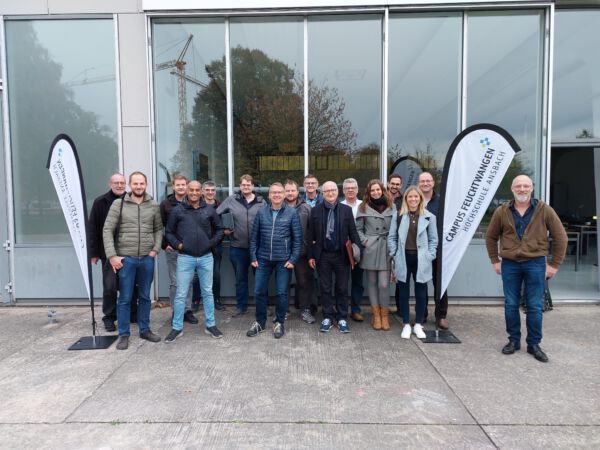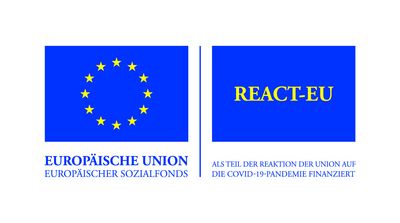Successful graduation of Energy Advisor 2.0
This week, all participants successfully completed the Smart & Green Academy’s Energy Advisor 2.0 training course. The course, which was funded by the European Social Fund in Bavaria (ESF REACT-EU), was led by Dipl.-Ing. Christoph Matschi, with support from Prof. Dr.-Ing. Haresh Vaidya and laboratory engineer Oliver Abel. In five units, the course participants learned more about a holistic approach to buildings and the targeted and economical use of materials. They were also taught how to use the necessary software and how to draw up a life cycle assessment of a building. In particular, the focus was on the interaction of the life cycle stages of construction, operation and disposal of a building.
We would like to thank all participants and supporters!
We expect to offer another course in spring 2023:
Energy System Architect
Content: The energy supply (electricity and heat) in residential and non-residential buildings is currently undergoing a major change: not so long ago, the electrician provided the power supply and, independently of this, the plumber and heating engineer installed the heating system for the building.
Today, the requirements are more complex: Electricity and heat supply should be as efficient and CO2-neutral as possible, smart functions and the connection of all systems to the Internet are a matter of course. With photovoltaics (PV) and storage solutions, every owner becomes a prosumer who no longer just draws energy from a central power plant, but also provides it as an active participant in a decentralized network. In order for all these building blocks to develop their full potential, a central authority (interface coordinator*) is needed that can oversee all technologies and mediate and translate accordingly between the trades.
Planned learning objectives: The contents of the energy system architect are correspondingly diverse. Fundamentals of building and energy technology as well as programming and control are taught. The possibilities offered by artificial intelligence (AI) are demonstrated and the processing of acquired measurement data is explained. Participants are enabled to record the variety of systems and to evaluate their suitability as well as to ensure the necessary networking.


